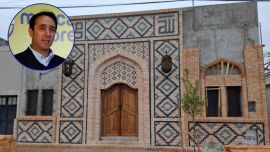Feminist groups are calling on the government to declare a state of national emergency over gendered violence, in the wake of data showing that at least 27 femicides have been registered so far this year in less than 40 days.
Worryingly, that number could rise even higher, with a further six homicides last month that could still yet be confirmed as the killing of a female on account of her gender.
Femicides have been a constant in the media landscape since they were acknowledged as a separate phenomenon beyond the realms of straightforward domestic violence. Yet in 2019 to date, there has been little sign of progression in the battle to eradicate the killing of women and girls.
So far this year, at least 27 femicides have taken place, with 24 confirmed killings of women in January alone, according to data from feminist organisation Mujeres de la Matria Latinoamericana (MuMaLá). That’s a sharp rise on last year’s figures – in the first month of 2018, 19 femicides took place in Argentina.
In response, MuMaLá this week called on the government to declare a national emergency regarding gendered violence.
“Any declared emergency places the issue at hand at the centre,” Victoria Aguirre, head of the Capital Federal chapter of MuMaLá, told the Times. “Since we created the MuMaLá Observatory in 2015, the numbers have not gone down.”
“Achieving the declaration of a national emergency would allow us to recover our budget and to be a priority for two years. Two years for this to work, to be able to break free from the systematic violence that’s cutting so deep,” Aguirre added.
A group of politicians, including Renewal Front lawmakers Cecilia Moreau and Carla Pitiot, added their voice to the push this week, writing to President Mauricio Macri and asking for extraordinary sessions to be called in Congress.
THE NUMBERS
Tallying the exact numbers of femicides in Argentina is a complicated business. The numbers for January differ across organisations due to different criteria being applied, but most show an increase from January 2018, which according to the the Femicide Observatory of the National Ombudsman saw 19 femicides.
According to MuMaLá, Protesters demonstrate agaisnt gender violence in Buenos Aires last Friday. Each protester has the name of a victim of femicide on their person. January saw 24 femicides based on reported cases in the media – one woman killed every 31 hours. There are six cases that are still under investigation, the group said, with autopsies and forensics to be concluded. Should those cases be confirmed, it would push the total to 30 femicides in 31 days.
“We are seeing a definite increasing trend. That’s because we’re seeing machismo coming out to defend itself. The sad reality is that when you go out and fight, there’ll be someone to combat you,” explained Aguirre. “Machos don’t like seeing their women empowered, accompanied by other women and rejecting society’s impositions of this or that. This applies to dissident identities as well.”
Femicides are rarely committed by strangers: according to MuMaLá data, 29 percent are carried out by the victim’s partners and 25 percent were ex-partners, while 54 percent lived with their victim. In addition, there have been two recorded transvesticides so far in 2019: Antonella Mirna Di Marzo died after a three-month coma due to a brutal beating, while Laly Heredia Escobar was shot multiple times on February 3, dying of her injuries.
“We didn’t used to have the tools we have now, we didn’t have the principle of femicide. These murders used to be categorised as just ‘crimes of passion’: as a problem within a couple, not of society at large,” Aguirre said.
With that category on hand, the ensuing detailed breakdown of the January femicides is sobering. Some 46 percent of victims were killed in their own homes: 12.5 percent were sexually abused and 8.3 percent were pregnant at the time. Almost 40 percent of the January femicides were committed with a firearm and over a third of those firearms were government-issued (17 percent of the aggressors were members of a security force). Other methods include beating (20.5 percent) and burning (12.5 percent). After the fact, 30 percent of the aggressors committed suicide. MuMaLá also reports that 11 children have now lost their mothers.
THE PETITION
As part of its bid for a renewed focus on femicide, MuMaLá has created a petition calling for a state of national emergency to be declared. It has currently received more than 49,000 signatures on Change.org and it includes 14 specific proposals, including a budget raise for the National Women’s Institute (INAM) and that every ministry allocate 10 percent of its budget towards policies that tackle inequalities between men, women and dissident identities (trans and non-binary). Many proposals revolve around short-term, urgent enforcement of security and judicial measures, with calls to monitor the disarmament of security force personnel with gender violence on their record, as well as the “urgent application of electronic devices for sexual aggressors that defy judicial measures.”
This is in response to the troubling tendency that many of the aggressors were supposedly being monitored by the judicial system: of the January victims, 4.2 percent had previously reported their aggressor to the authorities. According to the Femicide Observatory of the National Ombudsman, 17 percent of the 251 confirmed femicide victims (between January to November 2018) had already pressed charges against their killer. In addition, 13 percent had restrictive measures placed on their aggressors. This, for MuMaLá, is a clear example of a failure in the State’s responsibilities.
“All we want is for victims to have the tools to report their abuser and be guaranteed protection. That is why we are holding the state responsible: there are tools available that are not being used efficiently and the social movement needs concrete policy support,” said Aguirre.
This lies at the centre of the petition: beyond the troubling numbers of 2018 and 2019, the proposals reaffirm pre-existing policies and measures. These include the full implementation of the Integral Sex Education Law (ESI); the so-called “Micaela law,” which calls for obligatory education of state officials on gender issues; and a plethora of protective measures against aggressors that are not being enforced, such as the aforementioned electronic devices.
“We hear all the time about women being stalked by aggressors that are supposed to have an electronic bracelet monitoring their movements. Those suffering from gendered violence have nowhere to seek refuge and even if they manage to report their abusers, they see that nothing gets done. What is the victim to read from that? They ask, ‘Where do I go? What do I do now?’”
“We’ve had no answer from the government or the INAM. We’re worried about budget cuts, but it’s a lack of interest and concrete measures. It’s an electoral year, we know that, but we’re not going to stop fighting,” continued Aguirre.
THE PLAN
Last year, President Mauricio Macri’s administration presented a 2019 budget with cuts across the board that look set to dramatically affect the state’s ability to tackle gender inequality and femicides. When it comes to the INAM, funds were increased by 10.9 percent, a number substantially below projected inflation rates for 2019 and could imply a net loss. The move met with heavy criticism from feminist and human rights organisations.
“It would be too premature to give feedback or comment on whether or not we support this project. What’s being proposed is a state of law and should be channelled through the legislative branch,” an INAM representative, who asked not to be named because the body’s position on petition was not yet defined, told the Times. “Due to the separation of powers, we cannot state our opinion as an institution until it has been debated in the appropriate space.”
“We find the numbers for January to be very worrying but, unfortunately, unsurprising as they are within the mean we’ve been seeing in Argentina. There is public policy to accompany the issue, cultural change is needed and will take time.”
The space given to femicides and gendered violence in the political agenda this year has yet to be defined too. Congress is still in recess and government priorities have yet to be fully established, especially given Argentina is in an electoral year. Civil society participation is high, however, with MuMaLá getting more than 200 signatures in an hour in downtown Buenos Aires and the digital pledges on Change.org steadily rise beyond the initial goal of 50,000 signatures. Yet for many, social consciousness and movement on the street isn’t enough when faced with the enormous challenge of protecting those vulnerable to gendered violence.
“To say that change has to come from society is just wishful thinking. We can’t expect the problem to go away by trusting that everyone will do their bit. We need public policy that tends towards solving the problem and protecting women right now. Yes, there also has to be long-term cultural change but what we need now is real, active politics,” concluded Aguirre.


























Comments